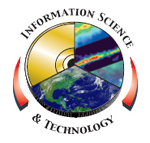
Please Note: The content on this page is not maintained after the colloquium event is completed. As such, some links may no longer be functional.
Paul Edwards
Data, Models, and Knowledge in Climate Science: Historical Lessons and Contemporary Controversies
Thursday, September 29, 2016
Building 3 Aud 11:00 AM
(Cookies available at 10:30 AM)
This talk explores the long history of climate data, climate models, and their interaction, arguing that without models, there are no data. Today, no collection of signals or observations -- even from satellites, which can "see" the whole planet with a single instrument -- becomes global in time and space without passing through a series of data models. Models produce or process nearly all knowledge of Earth's climate -- not only its future, but also its past. Global climate models simulate the climate system's reaction to a variety of future emissions and resource use pathways. They are tested, in part, by hindcasting the 20th century. Meanwhile, reconstructions of Earth's climate history depend on data modeling as well as on the recovery of historical weather records and proxy data. Increasingly, all areas of meteorology deploy techniques that proliferate, rather than constrain, global data images by means of numerous nested and linked models. After tracing this history, I will apply some of its lessons to recent climate controversies involving the model-data relationship
Paul N. Edwards is Professor of Information and History at the University of Michigan. He writes and teaches about the history, politics, and culture of information infrastructures. Edwards is the author of "A Vast Machine: Computer Models, Climate Data, and the Politics of Global Warming" (MIT Press, 2010) and "The Closed World: Computers and the Politics of Discourse in Cold War America" (MIT Press, 1996), and co-editor of "Changing the Atmosphere: Expert Knowledge and Environmental Governance" (MIT Press, 2001), as well as numerous articles.
IS&T Colloquium Committee Host: John Schnase
Sign language interpreter upon request: 301-286-7040
